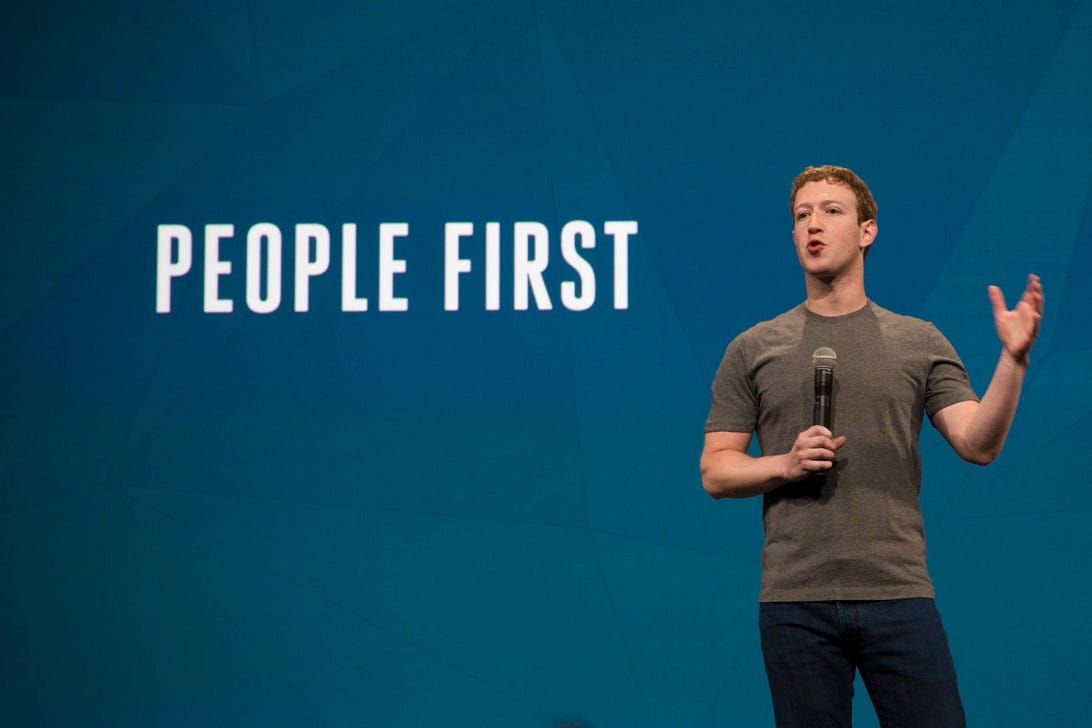By Ian Sherr
Mark Zuckerberg’s lived his adult life spreading the gospel of Facebook: “Bringing the world closer together.”
And in the 14 years since Facebook was founded, he’s largely succeeded. More than 2 billion people use his service each month, making it the biggest social media network on the planet. It’s the largest photo site on the web. It’s now home to powerful social movements, an outlet for political dissidents and, yes, the place where you share baby photos and what you had for lunch. Most of us know more people who use Facebook than those who don’t.
But the cheery optimism that helped Facebook become one of the most powerful companies in the world left it vulnerable to being co-opted by bad actors and twisted into a tool for mass harassment, for spreading propaganda and, most recently, for mass theft of our personal information by a data consultancy that works to influence elections.

“For the first decade, we really focused on all the good that connecting people brings,” a contrite Zuckerberg said in a rare media call last week. “But it’s clear now that we didn’t do enough. We didn’t focus enough on preventing abuse and thinking through how people could use these tools to do harm as well. That goes for fake news, foreign interference in elections, hate speech. … We didn’t take a broad enough view of what our responsibility is, and that was a huge mistake. It was my mistake. But it’s clear now that we didn’t do enough.”
He’s not the only one who thinks so.
The 33-year-old multibillionaire is heading to Washington to answer questions from Congress about how Facebook was blindsided on so many fronts and what he’s going to do to ensure users’ data isn’t misused again. His testimony, before a joint hearing of the Senate Judiciary Committee and Senate Commerce Committee on Tuesday and then before the House Energy and Commerce Committee on Wednesday, is likely to be one of the biggest spectacles of the year.
And that’s not just because lawmakers have everything to gain by spending two days grandstanding at the expense of the tech industry’s boy wonder. At stake could be the way Washington treats, as in regulates, the entire industry.
“Advertisers are queasy, influential users are critical, there’s been a global avalanche of bad press, and now that the company has to open its eyes after years of not doing much, he’s finding they’re truly in a mess,” said Jeffrey Chester, executive director of the privacy advocacy group Center for Digital Democracy. “He has to do a Herculean effort to apologize and reassure people he’s making meaningful changes.”
For decades, lawmakers and government regulators have treated Facebook and other Silicon Valley companies like favored children. The tech industry created jobs and unimaginable wealth, and it routinely upended the way we live our lives. Tech companies together make up the third largest economic force in the world, behind the US and China, according to one study from business software maker Apptio.
All those entrepreneurs — Bill Gates, Steve Jobs, Jeff Bezos, Elon Musk, Zuckerberg — weren’t just writing code or selling gadgets, and they weren’t mere celebrity CEOs. They were the human embodiment of the American dream.
Zuckerberg will no doubt remind lawmakers that Facebook inspired world-changing social movements, connected billions of people with friends and family around the globe, and evolved into a town square for the digital age. But he’ll also acknowledge, as he’s said over and again in the past two weeks, that social media has become a shockingly effective tool for spreading propaganda and undermining public trust. All the while, he and his team didn’t anticipate the threats to our private information and the theft of our user data.
“With all of the data exchanged over Facebook and other platforms, users deserve to know how their information is shared and secured,” Chuck Grassley, the Republican chairman of the US Senate’s Committee on the Judiciary chairman, said in a statement.
A Facebook spokesman declined to comment beyond Zuckerberg’s earlier statements. The hearings will be carried live on television and streamed over the web.
